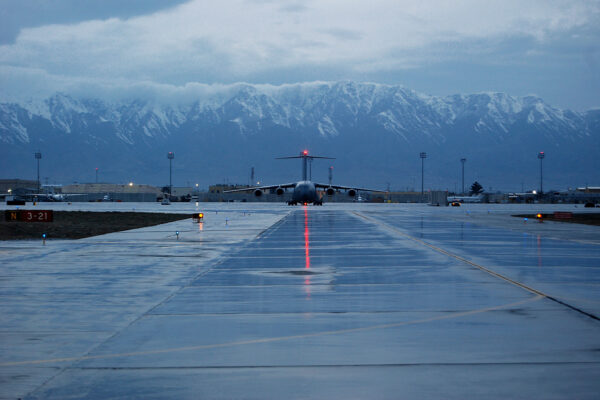
As helicopters and planes lifted the last American and British forces out of Afghanistan’s Helmand Province on Monday, the Reuters news agency cited one Marine captain of mixed Vietnamese descent saying the scene reminded him of the fall of Saigon, “of people running to the helicopters — just this mad dash to the aircraft.”
The soldier recognized that unlike the Americans and South Vietnamese who were evacuated from the republic’s capital in 1975 before it fell to the communists, “We’re not refugees or anything.” But the parallels don’t end there.
As in 1973, when the United States signed the Paris Peace Accords that ended their involvement in the Vietnam War, the vast majority of Americans is simply tired of the conflict in Afghanistan. Irrespective of whether the war’s aims have been achieved or not, America wants out. Whatever political will remained to see the war through disappeared when Democrat Barack Obama was elected president in 2008 on an anti-war platform.
To maintain some semblance of American credibility, Obama couldn’t simply order his troops to pack up and leave. A “peace with honor” had to be achieved. The North Vietnamese, at least, gave Richard Nixon a commitment to stop fighting, even if they later broke it and conquered South Vietnam anyway. The Taliban wouldn’t even give Obama that much. Both realized they had only to wait out the Americans.
Just as the United States promised to come again to South Vietnam’s aid in case the North Vietnamese resumed the war and didn’t, a residual force is left behind in Afghanistan to train and advice local forces that won’t be able to stop the Taliban from taking over the country again.
As was the case in South Vietnam, the liberated Afghanistan is likely to succumb to barbarity and oppression. If it does, it could destabilize the whole region.
India and Pakistan are already picking sides. The former will cling to its alliance with the civilian government in Kabul as long as possible, if only to keep the Pakistanis preoccupied. The military and intelligence services in Islamabad, by contrast, are revisiting their friendship with the Islamists whom they see as a weapon against their nemesis India, setting the stage for a proxy war.
Iran’s sense of insecurity will be heightened if Sunni fanatics return to power in Kabul, possibly aggravating its cold war with Sunni Arab powers in the Middle East. Neighboring Central Asian republics, coping with ethnic divisions and Islamic terrorism of their own, would be further destabilized — which could draw in great powers China and Russia which both have strong economic and political interests there.
A critical mistake the United States and NATO allies made was not involving these interested powers in a comprehensive settlement of the Afghanistan question. Rather, after smoking out the terrorists who plotted the September 11, 2001 attacks on their homeland, the Americans set out to do “nation building” in a place where there wasn’t much of a nation to begin with virtually on their own.
For years, Washington officialdom then neglected the war in favor of an even more disastrous military expedition in Iraq. Throughout, too often, every Afghan who opposed the occupation was considered an insurgent or worse. As in Vietnam, where every resistance fighter was considered a communist and therefore part of an international conspiracy against the free world, Americans had great difficulty distinguishing between global jihadists who actually menaced them and the sort of Taliban fighters who just wanted to stop foreigners bombing their towns.
Only in the last few years were negotiations with the Taliban attempted: a despicable lot, for sure, but still the most powerful Pashtun group in the country, representing its largest ethnic group. But this happened while withdrawals were already being announced very publicly. Why should the Taliban, at that point, have negotiated with an enemy that was planning to leave anyway?
Just as the North Vietnamese refused to negotiate seriously until Nixon escalated the bombing campaign against their country, so the Taliban rejected reconciliation when they had nothing to lose. They calculated — probably rightly — that they will be able to get far more on their own once the Americans withdraw than they could get from negotiations.
This all leaves the United States with little choice but to pull out. Initially unprepared for nation building in Afghanistan and later distracted in Iraq, America missed its chance to fundamentally change the first country for the better. As a democracy, it cannot very well make a renewed effort now that most Americans no longer want the war.
It remains up to those Afghans who picked America’s side — mostly Tajiks and Uzbeks and many of the country’s women who were brutally suppressed under the Taliban — to save themselves. If they fail, it doesn’t seem likely helicopters will fly in to evacuate them.

India under Modi will not let Afghanistan down. Taliban with Pakistan & China help can’t comeback but they will be a big headache for the Afghan in their nationbuilding exercise.